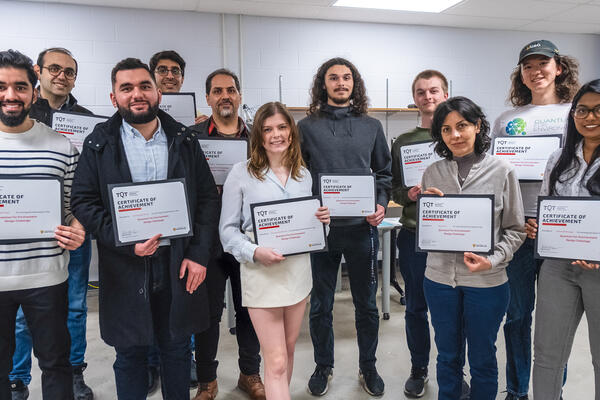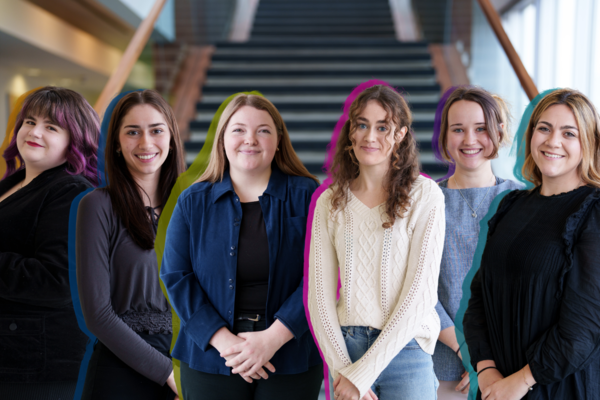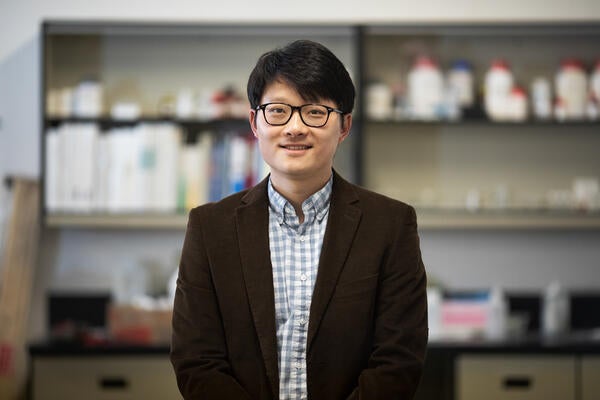
$5.2 million awarded to five Canada Research Chairs at Waterloo
Five researchers at the University of Waterloo were named Canada Research Chairs (CRC) today

Five researchers at the University of Waterloo were named Canada Research Chairs (CRC) today
By Media RelationsFive researchers at the University of Waterloo were named Canada Research Chairs (CRC) today.
Professor Raymond Laflamme, executive director of the Institute for Quantum Computing at Waterloo, sees his CRC renewed for $1.4 million over seven years. His research on controlling quantum systems using quantum error correction is critical to the development of robust new quantum technologies. Harnessing the power of technologies at the atomic scale requires mechanisms to control these fragile, yet powerful behaviours.
“We can’t make sense of quantum phenomena with traditional laws of physics, but with quantum laws we can understand, predict, and control quantum systems to develop the next generation of information technologies,” said Laflamme. “The CRC renewal provides me with perhaps the most precious resource – time – which is essential to continue our progress in the complex and constantly evolving quantum world.”
The Honourable Kirsty Duncan, Minister of Science, today announced a total investment of $5.2 million for Waterloo in key research areas of environment and energy, mechatronic vehicle systems, graph theory, and algorithm design.
“Besides the extremely valuable time that’s required to focus on research, the CRC program provides researchers with the opportunity to train the next generation of emerging academics and achieve international recognition in their fields,” said D. George Dixon, vice-president, university research at Waterloo. “The program supports Waterloo’s goal of attracting and retaining outstanding and innovative world-class researchers that will have a profound impact on the world we live in.”
The four other Waterloo researchers included in today's announcement:
Professor Burch will examine how cities address climate change and transition toward resilient, low-carbon development while investigating new ways of governing sustainability challenges and entrepreneurs as sources of innovation.
Professor Khajepour will investigate new mechatronics concepts to create innovative systems in order to develop new technologies in holistic vehicle control, urban vehicles, anti-idling systems, and improve the efficiency of internal combustion engines.
Professor Munro will create information system techniques to address time and space constraints and use advanced problem-solving algorithms to improve the way data is organized.
Professor Postle will study the structural, topological, and chromatic properties of graphs with a goal of developing applications in areas such as computer science, communication, and transportation.

Read more
12 Waterloo students and postdoctoral fellows receive up to $10,000 in funding to develop their green-tech solutions

Read more
Waterloo announces winners of annual award for co-op students from each of the six faculties

Read more
Adam Wei Tsen receives prestigious fellowship to help advance transformational research of 2D quantum materials and devices
The University of Waterloo acknowledges that much of our work takes place on the traditional territory of the Neutral, Anishinaabeg and Haudenosaunee peoples. Our main campus is situated on the Haldimand Tract, the land granted to the Six Nations that includes six miles on each side of the Grand River. Our active work toward reconciliation takes place across our campuses through research, learning, teaching, and community building, and is co-ordinated within the Office of Indigenous Relations.